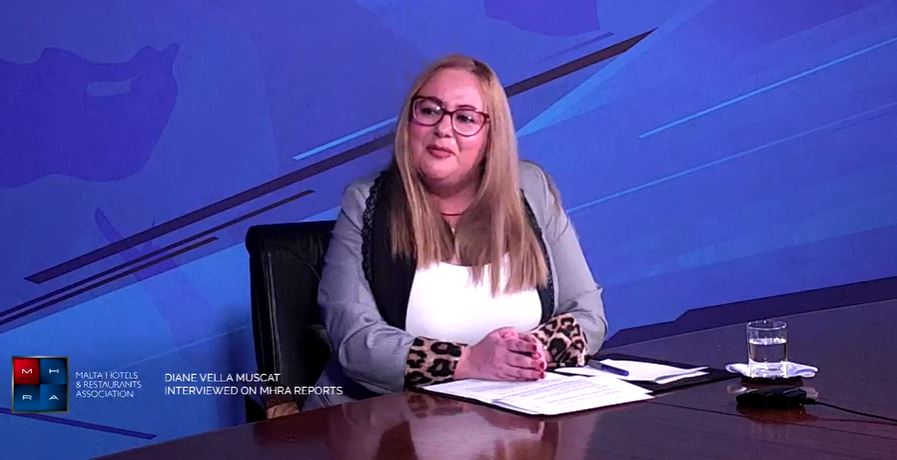Once the economy re-opens, employees must go to work, no matter any concerns they might have about getting infected with the COVID-19 virus, said the director general of the Department of Industrial and Employment Relations Diane Vella Muscat
During an interview hosted by the Malta Hotels and Restaurants Association (MHRA), association CEO Andrew Agius Muscat expressed employers’ concern about employees who might not want to return to work.
“We’re all keen to gear up again and open our doors to start offering our services to our guests,” said Mr Agius Muscat, noting that recruitment and rebuilding the organisational structure would be key issues going forward.
“If we had to speculate a bit – COVID will still be with us – we’ll probably have issues with an employee who does not want to work in a particular role, or with another employee, maybe because one has been vaccinated and the other hasn’t.”
“You’ve hit the nail on the head,” replied the head of the employment regulator. “We are receiving a lot of queries from employees who do not want to work with their colleagues. ’Shall I go to work when it reopens?’”
“The answer,” Ms Vella Muscat said emphatically, “is yes, you have to go to work. Irrespective of whether the wage supplement is there or not, you have to go to work.”
She explained that once receiving wages, whether through the supplement or not, work is not a choice, and the scheme is there to support both employers and employees.
“The wage supplement does not give you the option to stay home.”
Addressing concerns about employees who do not want to be vaccinated, Ms Vella Muscat said the global consensus is that vaccination would remain optional.
However, keeping in mind that a majority would be vaccinated, as long as proper COVID-19 health and safety precautions are followed, there should not be too many risks.
An employee therefore cannot not go to work because they perceive that they might get infected from their colleague. “There are many other risks which can happen on a daily basis. You cannot not go to work just based on this premise.”
Turning to the issue of quarantine leave, Ms Vella Muscat made it clear that this is only issued by the Superintendent of Health, and cannot be requested by an employee or employer.
She further clarified that quarantine leave is only for the time when there is a risk. If an employee is found to be infected, sick leave immediately applies.
“Once the Superintendent says an employee can go to work, that employee must go to work,” she said, before adding, “and the employer must accept them.”
“There have been situations where the employer was uncomfortable accepting the return of an employee, but once the Superintendent says an employee is fit to work, they must work.”
Mr Agius Muscat then asked about what he described as “irresponsible employees”, referring to people continue to enjoy their private lives and put themselves at risk.
While the lobby CEO noted that these may end up in repeated quarantine leave periods, putting a burden on their employers, Ms Vella Muscat made it clear that the leave must be paid no matter how often it happens.
“Thankfully,” she added, “such employees are few and far in between.”
Two years since its birth, Moneybase features on Microsoft’s Customer Stories
Moneybase has now just been featured on Microsoft’s latest Customer Stories
Finance Minister confirms continuity of food and energy subsidies
Spending on food and energy subsidies as a percentage of the GDP will be at 0.7% in 2025
MHRA congratulates Glenn Micallef on EU role, highlights positive impact on Malta’s tourism and cultural sectors
The lobby group emphasised that Malta’s cultural assets and sports scene are key factors in attracting visitors and fostering economic ...






